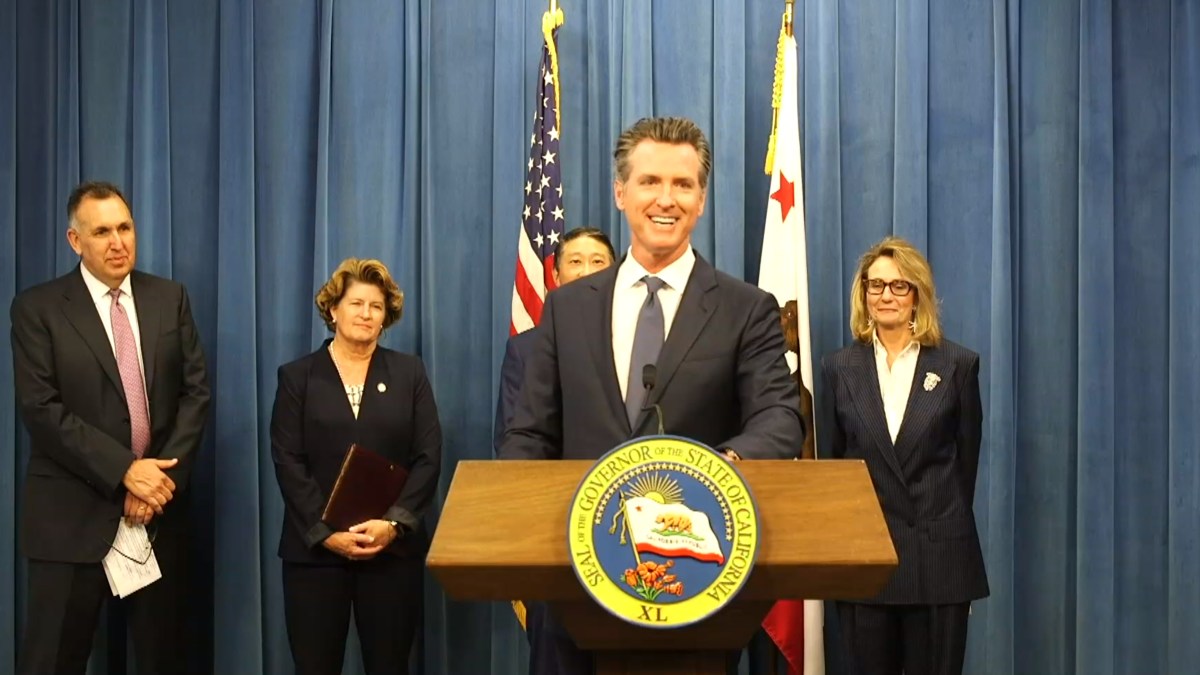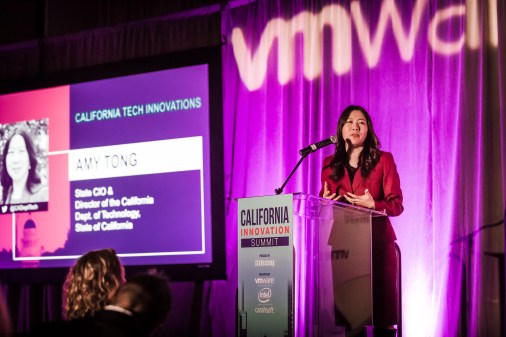California DMV hires new director, outlines technology roadmap

The “strike team” California Gov. Gavin Newsom tasked with investigating problems at the state’s Department of Motor Vehicles has reported back.
In a press conference Tuesday, Newsom announced new DMV leadership and unveiled an 18-page report containing the team’s recommendations, which he said were designed to be modest so as to avoid additional failures after numerous missteps that have cost the state “billions of dollars.”
“We’re not going big here,” Newsom said. “We are looking to modernize, but at the same time do it in a very systematic and sequential way. … And we found a new director of the DMV. Someone who wanted to do it!”
The new director is Steve Gordon, a private-industry IT veteran who spent 18 years with Cisco Systems. Gordon said he was ready to retire, but that he saw an opportunity to improve a government function that he himself had complained about many times before. A $242 million boost to the DMV’s funding included in Newsom’s statewide budget will enable many of the necessary upgrades, Gordon said.
“We will not modernize the DMV overnight,” Gordon said, but he noted that there’s “incredible potential” in the department. “This is really going to allow us to be able to make those changes to the infrastructure, make those changes to the system and really improve the ability to deliver the services that all Californians expect.”
The DMV has struggled to keep pace ahead of an Oct. 1, 2020 deadline for Real ID, a new form of identification mandated by the Department of Homeland Security. It’s also experienced technical difficulties and heightened workloads surrounding its “motor voter” program.
The California DMV has long struggled to keep its decades-old computer systems online, experiencing dozens of outages in recent months, including, Newsom said, one that occurred right as the he prepared to announced the strike team’s report.
“Just an hour ago, an entire computer system was down,” Newsom said. “I love it. On the day of the press conference. You’ll probably need to write that down. It’s just too perfect.”
Newsom said the man who knows how to fix those systems has retired to Hawaii, and must be briefly pulled back into service following each outage.
Kathleen Webb, the director of performance improvement at California’s Government Operations Agency is now the DMV’s new chief deputy director. Webb had been acting as DMV’s director since the departure of acting director Bill Davidson, who stepped down just weeks after replacing former DMV director Jean Shiomoto, who ran the agency under former Gov. Jerry Brown.
Along with California Transportation Secretary David Kim, Webb and Gordon are tasked with implementing the strike team’s recommendations, which involve updating the department’s IT infrastructure, as well as many tangential improvements to the DMV’s processes and services.
This includes enabling DMV field offices to accept credit cards. Newsom said an office in Davis will pilot the technology in September, while offices in Victorville, Fresno and Roseville are scheduled to deploy the capability in October. Currently, Californians can only pay the DMV by cash, check, money order or debit card.
“By end of the year, people will be able to use a credit card in the field offices,” said Marybel Batjer, secretary of the California Government Operations Agency and leader of Newsom’s strike team.
The state will deploy additional kiosks and partnerships with organizations like AAA that will allow people to seek DMV services without visiting field offices. The DMV also plans to launch a new website, designed with help from the nonprofit group Code for America, which recently held a hackathon for that purpose.
The department will launch a marketing campaign to inform the public of the various ways they can receive DMV services and to publicize the little-known fact that California DMV offices are open on Saturdays.
All DMV offices will close for half the day on Wednesday to train their approximately 5,000 front-line employees on how to administer Real ID effectively. Batjer said that training session of this kind had never been done before.
“This will give them the tools to provide excellent customer service,” she said. “We’re calling it Operation Excellence.”
The DMV plans to hire 1,800 additional staff to help handle a surge of customers as next year’s Real ID deadline approaches — all but 175 of those hires will be temporary.
The report, for which California hired additional help from the consulting firm McKinsey, concludes six months of research into the DMV. State lawmakers declined to order an additional audit last month, citing the strike team’s investigation and yet another audit of the department already underway.
“This is called governing, not campaigning,” Newsom said. “We’re consumed in this country by campaigns. … This is governing. And it’s tough, and it’s a grind, and it’s not easy, and this is going to take a few years. Next year will be tough.”






